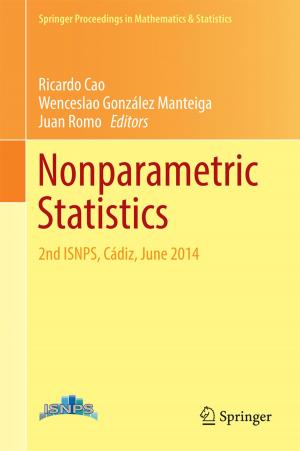A Systems Biology Approach to Advancing Adverse Outcome Pathways for Risk Assessment
Nonfiction, Health & Well Being, Medical, Medical Science, Pharmacology, Science & Nature, Science, Biological Sciences| Author: | ISBN: | 9783319660844 | |
| Publisher: | Springer International Publishing | Publication: | February 24, 2018 |
| Imprint: | Springer | Language: | English |
| Author: | |
| ISBN: | 9783319660844 |
| Publisher: | Springer International Publishing |
| Publication: | February 24, 2018 |
| Imprint: | Springer |
| Language: | English |
Social pressure to minimize the use of animal testing, the ever-increasing concern on animal welfare, and the need for more human-relevant and more predictive toxicity tests are some of the drivers for new approaches to chemical screening. This book focuses on The Adverse Outcome Pathway, an analytical construct that describes a sequential chain of causally linked events at different levels of biological organization that lead to an adverse health or ecotoxicological effect. While past efforts have focused on toxicological pathway-based vision for human and ecological health assessment relying on in vitro systems and predictive models, The Adverse Outcome Pathway framework provides a simplified and structured way to organize toxicological information. Within the book, a systems biology approach supplies the tools to infer, link, and quantify the molecular initiating events and the key events and key event relationships leading to adverse outcomes. The advancement of these tools is crucial for the successful implementation of AOPs for regulatory purposes.
Social pressure to minimize the use of animal testing, the ever-increasing concern on animal welfare, and the need for more human-relevant and more predictive toxicity tests are some of the drivers for new approaches to chemical screening. This book focuses on The Adverse Outcome Pathway, an analytical construct that describes a sequential chain of causally linked events at different levels of biological organization that lead to an adverse health or ecotoxicological effect. While past efforts have focused on toxicological pathway-based vision for human and ecological health assessment relying on in vitro systems and predictive models, The Adverse Outcome Pathway framework provides a simplified and structured way to organize toxicological information. Within the book, a systems biology approach supplies the tools to infer, link, and quantify the molecular initiating events and the key events and key event relationships leading to adverse outcomes. The advancement of these tools is crucial for the successful implementation of AOPs for regulatory purposes.















